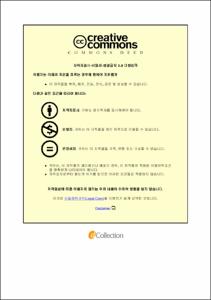결혼이주여성 암환자의 질병 경험
- Issued Date
- 2020-02
- Abstract
- This study was conducted to provide basic data useful for a better understanding of the illness experience of married immigrant women with cancer by identifying the fundamental structure and meaning of those cancer patients’ illness experience. This study uses Giorgi’s phenomenological method and in-depth interviews, and the data were gathered from nine married immigrant women with cancer from February through September, 2019. An in-depth interview with each of the study participants took an hour and a half on average. The principal question used in the in-depth interview was “how would you describe your experience with illness as a married immigrant women with cancer?” In keeping with the method proposed by Giorgi (2009), the transcribed data were analyzed in the following process: gaining a sense of the whole, identifying units of meaning, transforming them into psychological expressions, and unifying them into a general structure. Consequently, a total of 291 units of meaning, 37 essential psychological meanings, 18 subordinate constituents, and eight constituents. The illness experience of married immigrant women with cancer was categorized into: “feelings of bitterness and regret about cancer caused by their immigration by marriage,” “fear of losing the life built in another country,” “enduring their life,” “feeling of alienation they have to endure in the process of treatment,” “feelings of ambivalence in their relationships with others,” “emotional support that helps overcome the pain,” “feeling relieved at the accessibility of treatment in Korea,” and “taking roots in Korea despite feelings of uncertainty.” In conclusion, illness experience of married immigrant women with cancer involves perceiving the occurrence of cancer to be the result of hardships in their lives caused by their immigration by marriage, and enduring their lives despite their fear of losing to cancer the life they have built in Korea. However, those married immigrant women with cancer showed a longing for their home countries while experiencing health inequalities due to language and cultural barriers in their treatment processes. These married immigrant women exhibited feelings of ambivalence that they wanted to either reveal or hide their experiences of relationships they had in their experience of cancer. The support systems that appeared in the illness experience of the married immigrant women included their families, those in the same situations, those healthcare practitioners who understand and approach them, other married immigrant women, multicultural family support centers, and social media. Furthermore, these married immigrant women with cancer found it fortunate to have immigrated to Korea by receiving treatment successfully due to the accessibility of care in Korea. However, fear of recurrence still remained in them. However, they still have practiced altruism by sharing their own experiences and helping out other married immigrant women. While undergoing cancer treatment, they discovered the meaning of illness, learned to appreciate the little things in life, took roots in Korea, and solidified own places in society. The above-described results of this study have provided a profound and clear understanding of the illness experience of married immigrant women with cancer, and will lay the foundation for holistic nursing and hopefully be able to contribute to developing programs for the care of married immigrant women with cancer.
본 연구는 결혼이주여성 암 환자의 질병 경험의 본질적 구조와 의미를 파악하여 결혼이주여성 암 환자의 질병 경험을 이해하는 기초자료를 마련하고자 수행되었다. 본 연구는 Giorgi (2009)의 현상학적 연구방법과 심층 면담에 의한 연구로서 2019년 2월부터 9월까지 결혼이주여성 암 환자 9명으로부터 자료를 수집하였다. 연구 참여자와의 심층 면담시간은 평균 1시간 30분이 소요되었다. 심층 면담에 사용된 주 질문은 “결혼이주여성 암 환자의 질병 경험은 무엇입니까?”이었다. 필사된 자료는 Giorgi (2009)가 제시한 방법에 따라 전체의 인식, 의미 단위 구분, 심리학적 표현으로 변형, 일반적 구조로 통합의 단계를 거쳐 분석하였다. 그 결과 총 291개의 의미 단위, 37개의 본질적 심리의미, 18개의 하위구성요소, 8개의 구성요소가 도출되었다. 결혼이주여성 암 환자의 질병 경험은 ‘결혼 이주로 생긴 암에 대한 원망과 후회’, ‘타국에서 이룬 삶의 상실에 대한 두려움’, ‘견뎌내고 살아감’, ‘치료과정에서 감내해야 하는 소외감’, ‘대인관계의 양가감정’, ‘고통을 이겨내게 하는 버팀목’, ‘한국의 치료 수월성에 안도함’, ‘불확실성 안고 한국에서 뿌리내리기’ 등으로 범주화되었다. 결론적으로 본 연구에서 결혼이주여성 암 환자의 질병 경험은 암 발병 원인을 결혼 이주라는 운명으로 펼쳐지는 힘겨운 삶의 결과로 인식하고, 암으로 인해 한국에서 이룬 삶의 상실에 대해 두려워하였으나 견뎌내고 살아내고 있었다. 결혼이주여성 암 환자는 치료과정에서 언어의 장벽과 문화의 장벽으로 건강 불평등을 경험하면서 친정가족을 그리워했다. 결혼이주여성의 암 질병 경험에 나타난 관계의 경험은 알리고 싶거나, 숨기거나 하는 양가감정을 드러냈다. 결혼이주여성 암 환자의 암 질병 경험에 나타난 지지체계로는 가족, 동종 사례자, 자신을 이해하고 접근하는 의료인, 결혼이주여성, 다문화가족지원센터, SNS 등으로 나타났다. 또한, 결혼이주여성 암 환자는 한국의 치료 수월성에 따라 성공적인 치료를 받음으로써 한국으로의 이주를 다행이라고 여겼다. 그러나 재발의 두려움은 이들에게서 잔존하였다. 그런데도 이들은 자신의 경험을 공유하며 다른 결혼이주여성을 도와주는 이타적 삶을 실천하였다. 이러한 암 질병 과정을 거치면서 질병의 의미를 찾고, 작은 일에도 감사하며 한국에서 뿌리를 내리고 자신의 자리를 단단히 다져나갔다. 이러한 본 연구의 결과는 결혼이주여성 암 환자의 질병 경험에 대해 깊고 생생한 이해를 제공하였고, 이를 통해 전인 간호의 기초를 제공하며 추후 결혼이주여성 암 환자 관리를 위한 방안 마련에 기여할 수 있을 것이다.
- Alternative Title
- Illness Experiences of Married Immigrant Women with Cancer
- Awarded Date
- 2020-02
- Degree
- 박사
- Citation
- 송미숙. (202002). 결혼이주여성 암환자의 질병 경험.
- Type
- Thesis
- Source
- http://dcollection.kmu.ac.kr/common/orgView/000000118585
- Appears in Collections:
- 2. College of Nursing (간호대학) > 박사
- 파일 목록
-
-
Download
 THESIS-Nursing-2020-002.pdf
기타 데이터 / 603.73 kB / Adobe PDF
THESIS-Nursing-2020-002.pdf
기타 데이터 / 603.73 kB / Adobe PDF
-
Items in Repository are protected by copyright, with all rights reserved, unless otherwise indicated.